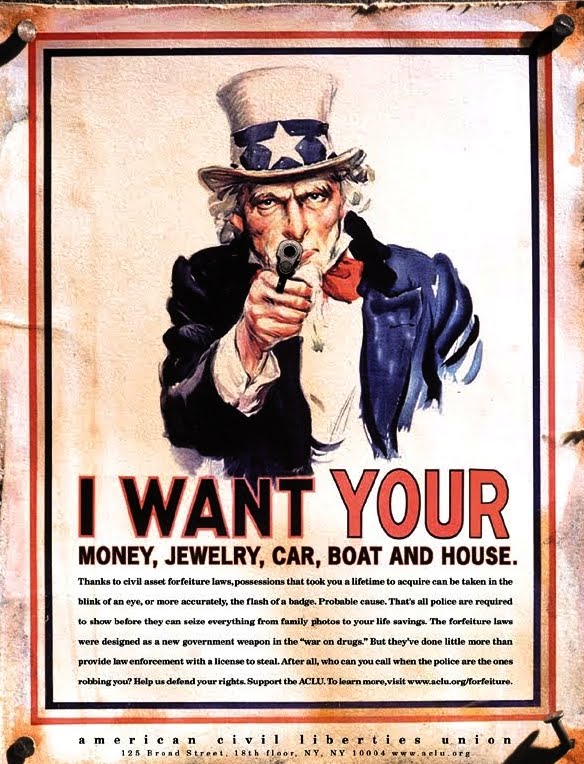This article describes how police decided that $16,000 in cash being carried by an individual looked suspicious… so they took it.
Joseph Rivers, a 22-year-old Michigan resident, was on his way to Los Angeles in April to fulfill his dream of becoming a music video producer, according to Rivers and his lawyer, when federal agents from the Drug Enforcement Agency (DEA) boarded his Amtrak train during a stop in Albuquerque.
DEA agents approached Rivers, the only black passenger in the train car, and asked to search his bag. Inside the bag, agents found $16,000 in cash—money Rivers said he had saved up and received from family members to pursue his music video aspirations.
The DEA decided that carrying a bunch of cash is suspicious, so they took it away. Here’s what’s really troubling about this practice, called “asset forfeiture”:
Under civil asset forfeiture laws, police and federal agents can seize property on the mere suspicion that it is connected to criminal activity. The property owner does not even have to be charged with a crime, since asset forfeiture is technically an action against the property itself.
There’s even a great quote the head of the DEA’s Albuquerque office: “We don’t have to prove that the person is guilty.” Nice.
This practice is pretty lucrative for law enforcement organizations, and money for all that fancy military-style gear has to come from somewhere, right?
The Washington Post reported in an investigative series last year that federal, state, and local law enforcement agents have seized $2.5 billion in cash since 2001 from nearly 62,000 people.
It gets really hard for me to read a story like this and understand exactly how this isn’t theft.

What is even worse is that it takes a long time, lots of court dates, and of course a lot of lawyers fees to get any of it back. Different states have different laws on seizure, where some can walk away with almost anything, others have to associate it with the suspicion. No matter the reason, this is theft and a violation of the 4th Amendment by the government. I’m honestly surprised that no court has as of yet overturned this insane tactic.
Taking assets when someone is charged, and holding it until found guilty or innocent of crime is one thing. Taking something based on suspicion without charge and with no recourse of said person within reason to obtain it in return is not reasonable by any definition.